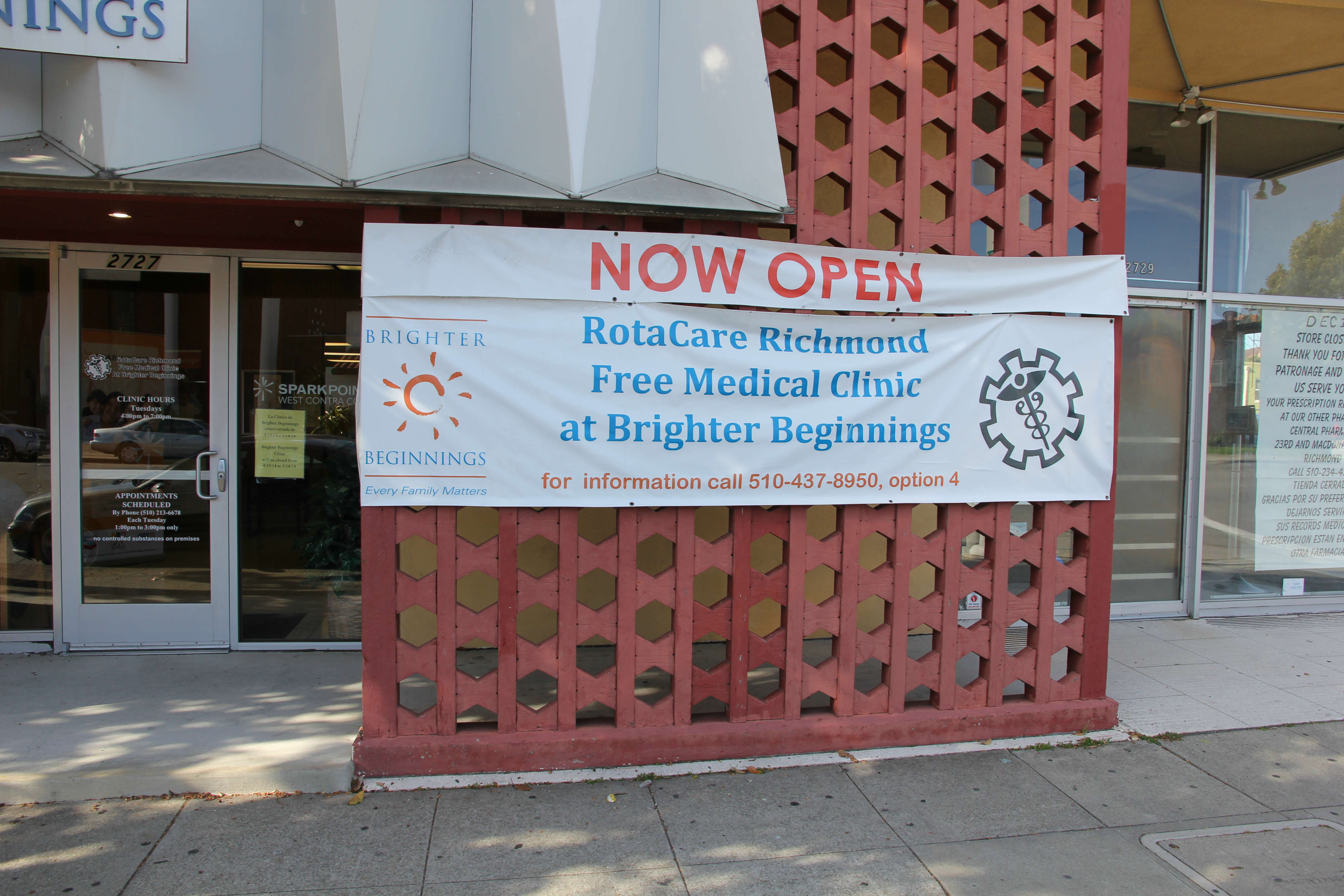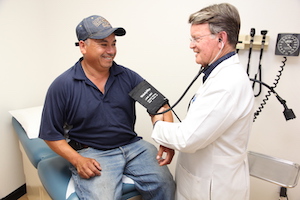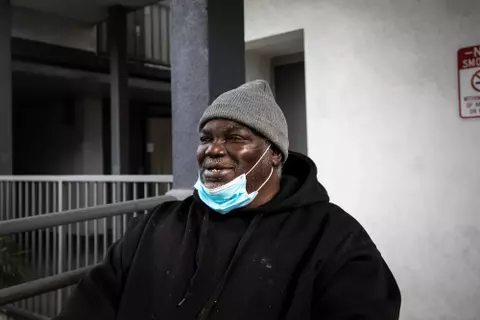
05 May RotaCare Richmond Free Medical Clinic Celebrates First Anniversary
By Will Harper
On any given Tuesday night at the RotaCare Richmond Free Medical Clinic, there is a steady stream of uninsured patients seeking health care from volunteer doctors and nurses. The weekly clinic, which provides free non-emergency care to adults and children, regularly operates at capacity.
The Richmond clinic – one of 12 RotaCare clinics in the Bay Area – opened its doors one year ago in partnership with Brighter Beginnings, a nonprofit specializing in family development. In its first year, the Richmond clinic saw nearly 600 patients, mostly from Richmond and San Pablo, and handled nearly a thousand office visits. The clinic is already planning to expand later this year and add two more exam rooms and three triage rooms.
“I guess you could say business is good,” says Dr. Pate Thomson, a retired cardiologist who serves as the clinic’s co-medical director. “Each week we’re delivering care to people who might otherwise go to already overcrowded emergency rooms, or just not get treatment at all because they can’t afford it.”
Thomson said he doesn’t expect things to slow down anytime soon. Even though the Affordable Care Act (ACA), also known as Obamacare, went into effect this year, many people still won’t have health insurance. An estimated 3 to 4 million people in California will still lack health insurance in 2019, according to a report by the UC Berkeley Labor Center and the UCLA Center for Health Policy Research. In the greater Bay Area, it’s estimated that over half a million people under age 65 will remain uninsured five years from now.
Some of those remaining uninsured will be people who can’t afford coverage even with the federal subsidies provided under the ACA. Many will be undocumented residents, who are believed to comprise a significant portion of the patients who seek treatment at RotaCare. The Richmond clinic, like all RotaCare clinics, offers health care with no questions asked. Patients aren’t required to show identification.

Dr. Pate Thomson, volunteer co-medical director of the RotaCare Richmond Free Medical Clinic, checks a patient’s blood pressure.
About 70 percent of RotaCare Richmond’s patients are Latino, and most of them primarily speak Spanish. Almost 90 percent of the clinic’s patients are living below the federal poverty line.
The free clinic runs from 4 p.m. to 7 p.m. every Tuesday. Patients must make appointments by phone in advance. The clinic provides urgent care for acute conditions, management of chronic conditions such as diabetes (21 percent of the clinic’s patients are diabetic), well-child exams and immunizations, free or low-cost prescriptions, and referrals to partner organizations that perform X-rays and blood tests.
In addition to medical care, the clinic offers social support services and financial counseling, and also attempts to link patients who potentially qualify for Medi-Cal coverage to appropriate community resources.
Aside from a part-time site administrator, the clinic is run by volunteer doctors, nurses, translators, and people providing administrative support.
“It takes a village to make this happen,” Thomson says.
Among the volunteers is Dr. Cynthia Carmichael, a family physician who has practiced in the area for nearly 20 years. Carmichael works at Kaiser in Richmond, and says she started volunteering at the clinic a year ago to help provide care to West County residents who lack health insurance.
“Over the past year, the RotaCare clinic has quickly become a vital resource for those in need. It provides much needed health care for those who otherwise fall through the cracks in our system,” says Carmichael.
The Richmond clinic does, however, face challenges. To meet demand, the clinic’s leaders are always recruiting more physicians to volunteer, and Thomson says it has been difficult finding specialists, like a dermatologist and an ear, nose, and throat doctor. RotaCare asks physicians to volunteer at least once a month. “It’s not a trivial request,” he says.
The clinic depends entirely on donations and grants, which help pay for prescriptions, x-rays, lab tests, and other services. Thomson says many people have the false impression that Obamacare eliminates the need for safety-net providers like RotaCare that serve the uninsured. There will still be many uninsured people who need health care, especially undocumented residents not eligible for assistance. There are an estimated 79,000 undocumented residents in Contra Costa County, according to a 2011 study by the Public Policy Institute of California.
“The need in the area for a clinic like ours is clearly there, and will be there for the foreseeable future,” Thomson says.
The Richmond clinic is affiliated with RotaCare Bay Area Inc., a nonprofit volunteer alliance of medical professionals, organizations and community members. The RotaCare Richmond clinic is funded by the Dohmen Foundation, Kaiser Permanente Foundation, and nine Rotary Clubs along the I-80 corridor from Berkeley to Hercules, as well as the Rotary Club in Alamo and Rotary District 5160.
Will Harper is a Richmond resident and a member of the RotaCare Richmond Free Medical Clinic’s advisory council. For more information about RotaCare and to learn how to volunteer or make a tax-deductible donation, visit www.rotacarebayarea.org






No Comments